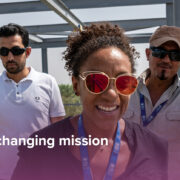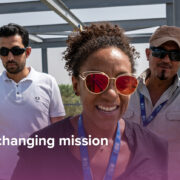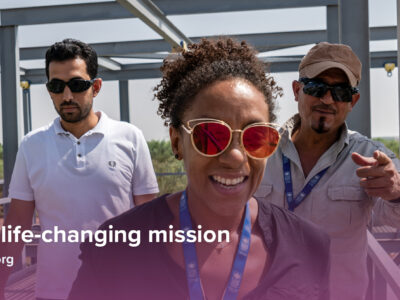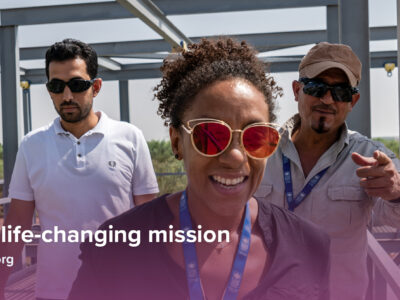
(Undermined by decades of political crises and lack of governance, CAR has dramatically lost its capacity to exercise its essential functions, including control and protection of the territory, and to respond to the social demands and basic needs of the populations. In addition, there are feelings of abandonment and discrimination resulting from the serious structural problems, which particularly affect the regions mentioned above such as landlocked, low or none state presence, extreme shortage of basic social services and basic facilities (i.e. education, health, WASH), widespread poverty and lack of economic opportunities and infrastructures. All these factors are undermining the resilience of the communities and prevent opportunities for early recovery.
During a visit to CAR, UNSG Antonio Gutierrez has strongly reiterated that the international community continues to support the Government for the deployment of its capacities and forces countrywide progressively and wherever possible. He also recommended introducing, as much as possible, the nexus between emergency assistance and early recovery activities. Experience suggests that if the authorities and the civil society are included in decision processes, and if dialogue as well as trust with communities are reinforced, then the likelihood of reasserting local authority and governance is improved.
The recent clashes between main armed groups have generated new waves of population displacements and the security situation is deteriorating countrywide. The countrywide violence highly affects vulnerable groups, including the youth, which represents as much as 75% of CAR’s population[1]. During conflicts, youth can be involved as victims or perpetrators. In CAR, as most youth are unemployed, this has made them easy target to be recruited by armed groups. There is evidence that if opportunities are given to youth through cash-for-work and income generating activities (IGAs) development, they will become self-reliant, rebuild their lives within their communities and will therefore more likely consolidate peace rather than join armed groups.
The overall objective of this intervention is to improve the resilience of selected communities in Ouham Pende and region through a participatory approach that will gather local authorities, relevant line ministries and communities to rehabilitate community infrastructures and basic services. It is expected that the project will contribute to address the feeling of neglect among
youth, a main driver of instability for communities.
The project will strengthen dialogue between local authorities and communities through the set-up of Local Committees (LC) to promote transparent and inclusive decision-making mechanisms. The project will pay a particular attention to youth-at-risk of recruitment by armed groups through the renewed Incomes Generating Activities (IGA) opportunities.
In achieving these deliverables, the project has two major expected outcomes:
Outcome 1: Reinforcement of governance of local government;
Outcome 2: Creation of short and long-term job opportunities through the CFW activities and enforcement of gender-sensitive vocational training and education for acquiring decent jobs.
As stated in Outcome 2, the creation of job opportunities for the 2,000 beneficiaries (that will include 1,000 women) is crucial in the achievement of the desired results. These jobs opportunities for the beneficiaries should be realistic and adapted to the labor and market opportunities in the region. Therefore, a survey should be conducted by a Consultant to conduct a market survey and present to IOM the sustainable job opportunities that could strive, favorable conditions and methodologies in the implementation.
The project is financed by the Korea International Cooperation Agency (KOICA) and is implemented by IOM. IOM was founded in 1951 and is the United Nations Migration Agency that works very closely with governments, intergovernmental and non-governmental organizations.
The consultant will carry out the following tasks:
- Examine the market situation to ensure that goods and services that would be provided by the 2,000 beneficiaries would be sustainable in the local market.
- Conduct a market survey within the zones of intervention of the project in order to identify sustainable economic activities in line with the local markets and existing opportunities.
- Analyze the capacity of the local market to absorb 2,000 micro-projects within the primary, secondary and tertiary sectors.
- Provide information on the possibilities of growth of beneficiaries’ micro-projects within the local market.
- Assess the structures and production prices, selling prices as well as profit margin per economic activity.
- Provide information about end users with regards to their consumption, ages, gender etc. Also present information on the quality of services including hygiene, presentation etc.
- Provide relevant information on commercial policies in relation to distribution, promotion, prices and payment modalities among others.
- Provide every information to IOM that would facilitate decision making in proposing the viable economic options for beneficiaries.
- Analyze the local market capacities in absorbing sustainable micro-economic projects for primary, secondary and tertiary production.
- Classify in order of likely success the various economic opportunities. This process would facilitate IOM’s sensitizations to the beneficiaries of the project and orientate them towards viable sustainable economic options.
- Provide relevant information on the market structure and how beneficiaries micro-project could positively contribute to the local market.
- Present a comprehensive multisectoral report in English with all the relevant information cited above as well as recommendations that would guide IOM and the 2,000 beneficiaries in selecting their income generating options.
A market survey report for Ouham Pende including recommendations and relevant materials that would guide IOM and the project’s beneficiaries in choosing their economic options.
- · The consultancy will have a total of 60 days consisting of the following:
- 30 days to conduct the assessment
- 30 days to compile and submit a comprehensive report
- Required Qualifications
· Advanced university degree or its equivalent in the social sciences, economics or related field;
· A minimum of 7 years of experience in design, management and evaluation of market opportunities for youths and other vulnerable target populations in conflict and crisis-related environments;
· Experience of working with IOM and UN missions and agencies in crisis and conflict – affected environments, in terms of programme design, management and evaluation.
· Capacity to speak and write clearly and concisely in both French and English.
- Langues
English and French (are required)










Comments